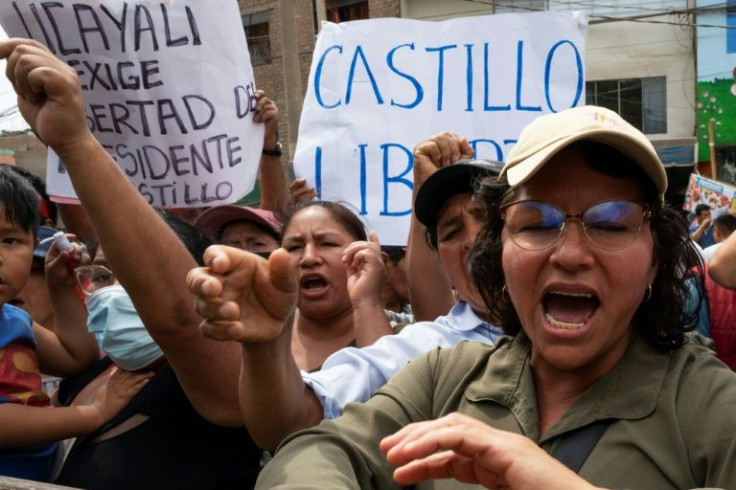A judge denied an appeal on Tuesday, and affirmed ousted Peruvian President Pedro Castillo's detention.
This comes as authorities build rebellion case against Castillo, reported ABC News. The decision taken by Supreme Court Judge Cesar San Martin Castro could lead to more violent protests across the country. His supporters have been demanding his freedom, the resignation of his successor and the scheduling of general elections to pick a new President and also replace Congress members.
Last week, Castillo had made a public announcement that he had dissolved the Congress by Presidential decree. The judge said it was “not a mere act of speech." It was a "concrete expression of a will to alter the constitutional system and the configuration of public powers."
Prosecutors are planning to seek his continued detention for up to three years, reported the Associated Press.
On Tuesday, Castillo appeared in a virtual court hearing to appeal his seven-day detention order. The appeal was ultimately rejected by Martin. During the hearing, Castillo said that he had "never committed the crime of conspiracy or rebellion.” He even described his detention as unjust and arbitrary, reported CNN.
Martin said that evidence suggested that Castillo was intercepted as he tried to reach the Mexican embassy to seek asylum then he was taken into custody. Later, he was ousted by lawmakers when he tried to dissolve Congress ahead of an impeachment vote. Castillo said that he will "never renounce or abandon this popular cause that has brought me here." In an apparent reference to the violent protests over his ouster, he urged cops and armed forces to “lay down their arms and stop killing this people thirsty for justice.”
The demonstrations have been particularly violent outside Peru’s capital, Lima. On Tuesday, Peru’s ombudsman’s press office said that at least six people have died in the protests, including two minors. Four of the deaths occurred in Andahuaylas, which is a remote rural Andean community where the poor have struggled for years.
Speaking for Castillo’s legal team, Attorney Ronaldo Atencio said that his client didn’t raise weapons or organize people capable of overturning the existing government. These points are some things that Peruvian law requires for someone to be charged with rebellion. The lawyer also also said that Castillo never sought asylum from Mexico, and he doesn’t present a flight risk.
Last Wednesday, after Congress dismissed Castillo for “permanent moral incapacity," Dina Boluarte, Castillo’s running mate and Vice President, was sworn in.

© 2025 Latin Times. All rights reserved. Do not reproduce without permission.





